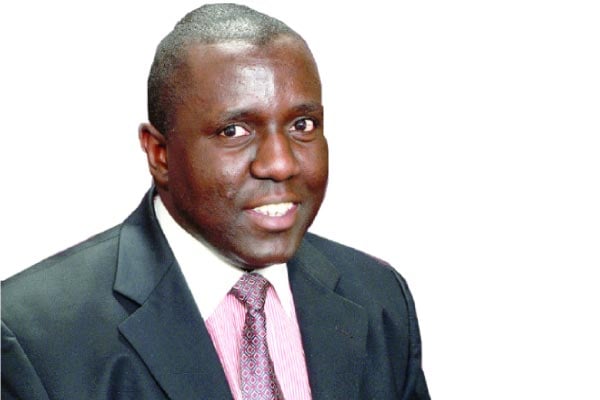Prime
In the New Year may we find the vim to finish the projects we start, dammit!

Author: Daniel K Kalinaki. PHOTO/FILE.
What you need to know:
- We morph from enterprising people who are going places, to unimaginative people who are there-there; as-if as-if.
A few years ago the Uhuru Kenyatta administration decided to build an expressway through Nairobi City to link the Westlands suburb to the Jomo Kenyatta Airport about 27 kilometres away. On good days this journey took about 90 minutes with Nairobi’s traffic. On bad days – and there were many bad days – it easily ate up two or more hours. It was so bad, travelling door-to-door from Westlands to, say, Bugolobi, via air, took about eight hours each way and cost over $350.
Going by bus cost you $50 and lost you only four hours more. A recent trip from Kiambu on the outskirts of the city, through Nairobi and to the airport took about 30 minutes. Half of it was spent getting onto the Thika Superhighway and then a quick 10-minute hie down the expressway to the airport.
My Kenyan friends like to worry and whine. And they have had a field day over the expressway: from the cost, to the inconvenience of the roadworks; from having to pay a toll to use the road, to the plants on the pillars that initially struggled to grow. But more and more motorists are grudgingly turning to the toll road. Paying UShs10,000 to save 90 minutes is a no-brainer.
Why is this all relevant to my two regular Ugandan readers? The story here is that it took our next-door neighbours less than three years – the project kicked off in earnest in 2019 – to build a 27-kilometre road bang down the middle of the busiest city in East Africa.
Why do we, on the other hand, seem incapable of executing projects with anywhere near as much desire? Work on the Kampala-Mpigi expressway, a 35-kilometre dual-carriage highway kicked off a few months after the Nairobi road and was supposed to be completed in early 2023. Less than 30 percent of the work has been done, and the completion date has been kicked down the road to 2025. A betting man should put their money on 2028. The less said about the Northern By-pass the better. A graduate engineer who started working on the road when it kicked off in the early 2000s could easily hand over the installation of lights on the road to their child.
That’s how long it took. It isn’t just the roads, mind. We have been rehabilitating Entebbe International Airport since before the 2007 Chogm event. The check-in area still has no air conditioning and the grass outside the airport remains overgrown. Karuma Dam is significantly behind schedule.
Mulago Hospital was supposed to be handed over in October 2019. It still hasn’t been completed or handed over officially. It is more than a decade-and-a-half since we discovered commercially viable crude oil deposits. Then we went around in circles in pursuit of perfection and forgot that often great is the enemy of good.
We have very good explanations for why projects delay in Uganda. Land compensations are complicated. Contractors take long to mobilise equipment. Domestic counterpart funding delays. Procurement disputes take long to be resolved. Our swamps are deep and need a lot of material to fill them in. Covid-19. Climate change. Ngoni migration. Sleeping sickness. Name it, and we will use it! These are mostly excuses, not explanations. Other countries used the Covid-19 lockdowns to speed ahead with construction projects; why was it an obstacle for us? Why would compensation disputes take years to resolve? Why haven’t we thought of setting up mobile commercial courts that move kilometre-by-kilometre along major projects, with valuers and lawyers and the like, resolving these claims? Why do we borrow money then keep it lying idle on the accounts of lenders while we go around bringing stakeholders on board in endless workshops? There are many reasons, but cumulatively, we have developed a national culture of sloth that has eroded ambition and dreams.
A nation drags its feet, seemingly incapable of shaking off the lethargy of indolence. We morph from enterprising people who are going places, to unimaginative people who are there-there; as-if as-if.
The penalty for incessant incumbency is a loss of oomph and the incentives to genuinely win re-election. A national ethos of ‘no change’ stymies the restlessness of a young and rapidly populating country that needs to sprint just to remain in situ.
It isn’t too late to change. But it will take the kind of political will we are yet to see, new blood, and large dollops of imagination. It will also take humility, for instance to do fewer things that we can complete, and build muscle memory of execution. If ever the country needed a new year’s resolution, it is to just finish what we start, on time and near budget. It’s the execution, dammit!
Mr Daniel Kalinaki is a journalist and poor man’s freedom fighter.
[email protected]; @Kalinaki




